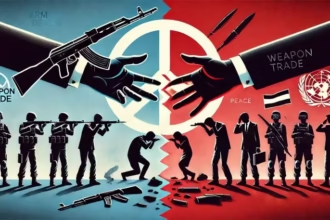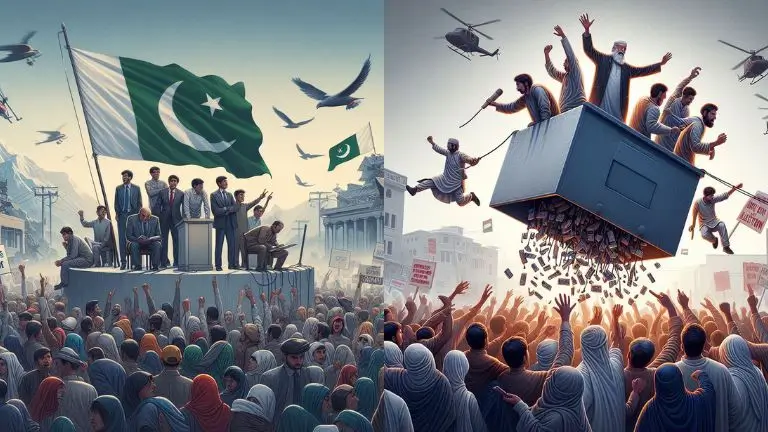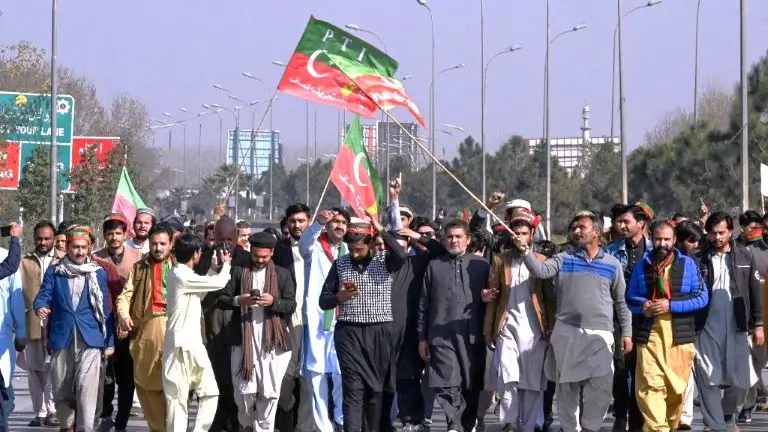As the dust settles on a year that will undoubtedly be etched in Pakistan’s political memory, the nation finds itself trapped in a crucible of unprecedented turmoil. The events of 2024 have exposed the deep-seated fractures in the country’s political and social fabric, revealing a complex narrative of power struggles, democratic erosion, and societal tension that threatens to reshape the very foundation of the Pakistani state.
The year has been defined by a perfect storm of political upheaval, centered primarily around the dramatic fall from grace of Imran Khan and the subsequent widespread protests that have shaken the nation’s power structures. What began as political controversy has evolved into a full-blown crisis of governance, with the military’s continued interference—the infamous “Khaki Raj”—once again taking center stage in Pakistan’s political drama.
The May 9 incident stands as a turning point, a moment that crystallized the deep-seated tensions between the government, the military, and political opposition. Khan’s arrest on terrorism and incitement charges became more than just a legal matter; it transformed into a symbol of the ongoing struggle between democratic aspirations and authoritarian control. The violent protests that followed were not merely expressions of political frustration but a volcanic eruption of years of accumulated resentment.
Khan’s arrest on terrorism charges transformed into a symbol of the ongoing struggle between democratic aspirations and authoritarian control.
The 26th Amendment emerged as a particularly controversial piece of legislation, ostensibly designed to root out political corruption but widely perceived as a calculated move to sideline political opponents. This amendment became yet another weapon in the arsenal of those seeking to maintain their grip on power, further eroding the already fragile democratic institutions of the country.
The situation reached a horrifying climax with the Islamabad massacre in November, a dark chapter that will undoubtedly be remembered as one of the most brutal moments in recent Pakistani history. The violent crackdown on protesters at D-Chowk revealed the government’s willingness to use extreme force to suppress dissent, drawing international condemnation and raising serious questions about human rights and democratic freedoms.
The sectarian violence in Parachinar added another layer of complexity to the national crisis. The eruption of Sunni-Shia tensions, fueled by external influences from Iran and Afghanistan, highlighted the persistent challenges of national integration and the fragility of Pakistan’s social fabric. With over 40 lives lost, the incident served as a stark reminder of the deep-seated divisions that continue to threaten the country’s stability.
The sectarian violence in Parachinar highlighted the persistent challenges of national integration and the fragility of Pakistan’s social fabric.
Internationally, Pakistan finds itself increasingly isolated. The U.S. government’s vocal criticism and the global protests organized by the Pakistani diaspora have amplified the nation’s internal struggles on the world stage. The newly elected Trump administration’s focus on human rights has put additional pressure on Pakistan’s leadership, forcing a global spotlight on the country’s internal challenges.
Bushra Bibi has emerged as an unexpected symbol of resistance, her advocacy for Imran Khan transforming her into a powerful political figure in her own right. Her prominence speaks to the changing dynamics of political resistance in Pakistan, where traditional power structures are being challenged from multiple angles.
The electoral process itself has been thrown into disrepute. Allegations of widespread electoral fraud, particularly the claims by PTI that the elections were manipulated to favor the PML-N, have further eroded public trust in democratic institutions. The military’s alleged role in these manipulations has only served to deepen the crisis of legitimacy.
The violent crackdown on protesters at D-Chowk revealed the government’s willingness to use extreme force to suppress dissent.
As 2024 draws to a close, Pakistan stands at a critical juncture. The nation faces a stark choice: continue down the path of political fragmentation and authoritarianism, or work towards genuine democratic reform. The road to recovery will be long and challenging, requiring unprecedented levels of political dialogue, institutional reform, and a genuine commitment to democratic principles.
The stakes could not be higher. The future of Pakistan hangs in the balance—a delicate moment where the actions of political leaders, military officials, and civil society will determine whether the country can navigate its way out of this crisis or succumb to further instability.
For a nation that has long struggled with the demons of political interference, sectarian tensions, and democratic backsliding, 2024 represents both a moment of profound challenge and a potential turning point. The world watches, waiting to see if Pakistan can emerge from this crucible stronger, more united, and more committed to the democratic ideals that have long been promised but seldom realized.
The journey ahead is uncertain, but the spirit of the Pakistani people—resilient, passionate, and hopeful—continues to shine through the darkness of these tumultuous times.
